When it comes to apologizing to a child, it's important to communicate in a way that fosters understanding and growth. Children may not fully grasp the complexities of adult emotions, so a genuine and heartfelt approach is essential. Taking the time to acknowledge your mistake and expressing your feelings can help build trust and strengthen your bond. Join us as we explore effective letter templates that make saying "I'm sorry" a meaningful experience for both you and your child.
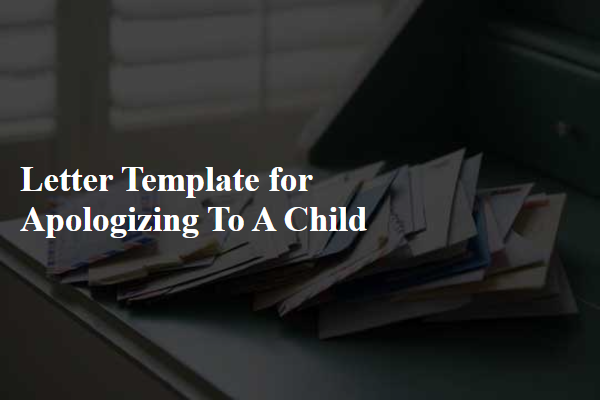
Tone and Language Appropriateness
In moments of misunderstanding, an adult's heartfelt apology can profoundly impact a child's emotional development. Apologies should be genuine, acknowledging the child's feelings and the situation's specifics. For instance, saying, "I regret raising my voice during our game earlier," conveys awareness of their experience. Acknowledge the child's perspective, "I understand that my words may have hurt you," providing them comfort. Essential elements include expressing remorse, taking responsibility, and offering reassurance of love and support. Ending with a positive resolution, like suggesting a fun activity together, fosters forgiveness and strengthens the bond. This thoughtful approach instills emotional intelligence and respect for feelings.
Simple Explanation of Mistake
Accidental misunderstandings can deeply affect children's emotions and feelings, especially during moments of conflict. A sincere apology can help mend relationships and teach valuable lessons. When expressing regret, it is crucial to explain the mistake clearly and simply. For instance, saying "I was wrong when I raised my voice," helps the child understand the specific action that hurt them. Choosing appropriate language, suited to the child's age, ensures the message is grasped. An apology enhances trust and fosters resilience. It also reinforces the importance of communication, understanding, and forgiveness, essential skills in emotional development.
Expressions of Empathy
Apologizing to a child involves understanding their feelings and expressing empathy. Relating to their emotions can foster connection. Consider acknowledging specific events, such as missing a birthday party or losing a favorite toy. Approach with sincerity, using simple language that resonates with their age. Clarify the intention behind the apology. Highlight your commitment to making amends. Encourage open conversation, allowing the child to express their feelings and thoughts. This process can help reinforce trust and emotional safety in the relationship, ultimately supporting their emotional development.
Reassurance and Solutions
Apologizing to a child entails a delicate balance of reassurance and effective solutions. Parents should approach this moment with empathy to foster emotional safety. Acknowledge the child's feelings by validating their emotions (e.g., disappointment from an unfulfilled promise). Using language appropriate for their age, communicate the reason for the mistake (e.g., unexpected work commitment). Offer tangible solutions, such as planning a special outing to a favorite local park (e.g., Central Park, New York) or an engaging activity (like baking cookies). Ensure to emphasize the importance of maintaining trust and strengthening the bond, demonstrating that the love and connection endure beyond mistakes.
Encouragement for Open Communication
Open communication between parents and children plays a crucial role in building strong relationships, especially during difficult moments. Encouraging children to express their feelings, such as disappointment or hurt, fosters emotional intelligence and reinforces trust. Regularly initiating conversations creates a safe space for children to share their thoughts openly. Utilizing age-appropriate language (for example, simple terminology for younger children or more complex discussions for teens) ensures clarity and understanding. Incorporating reassurance phrases like "It's okay to feel this way" further helps in validating their emotions. Additionally, actively listening to their concerns, without interrupting, nurtures their confidence in sharing future feelings. Frequent check-ins about their day can also encourage ongoing dialogue, leading to deeper connections.
Letter Template For Apologizing To A Child Samples
Letter template of an apology to a child for misunderstanding their feelings
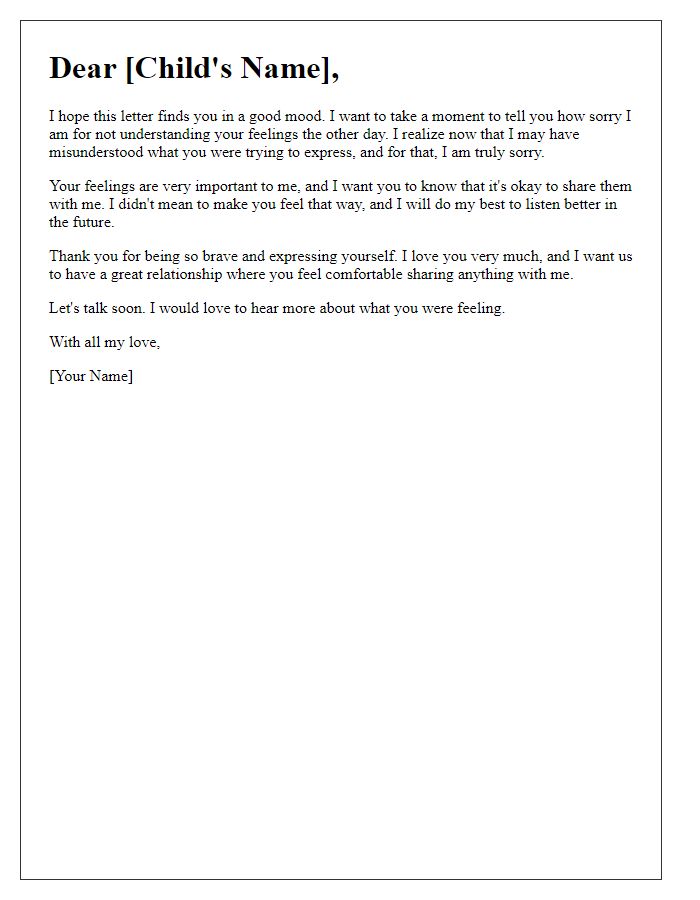
Letter template of an apology to a child for missing their important event
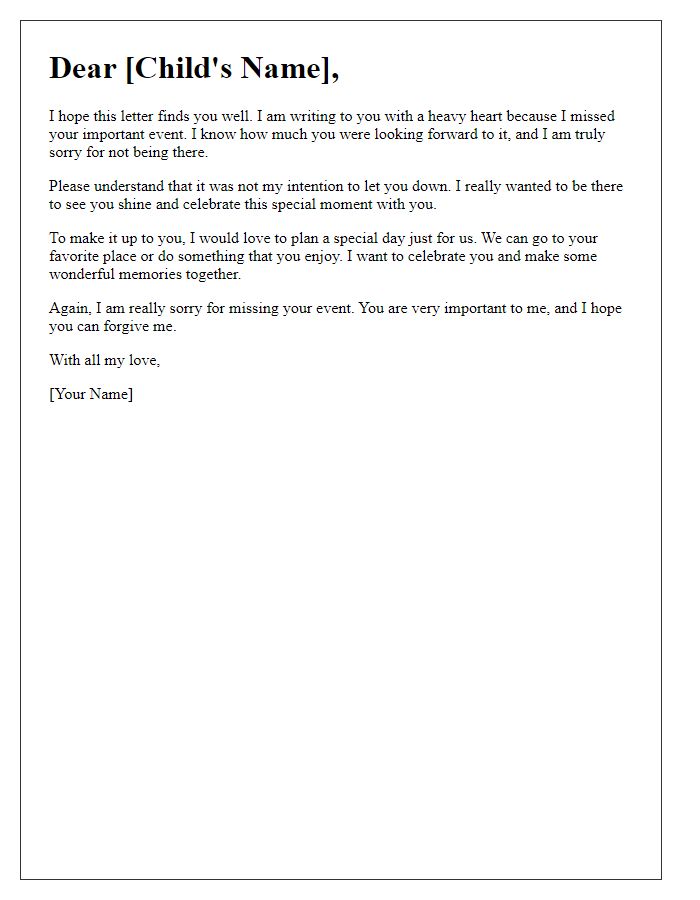
Letter template of an apology to a child for forgetting their favorite activity
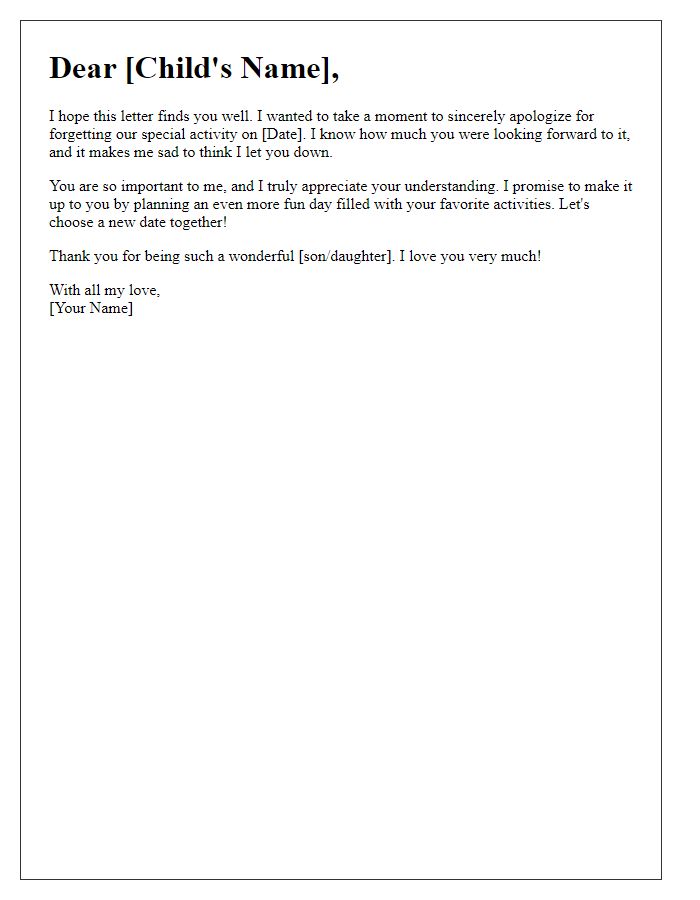

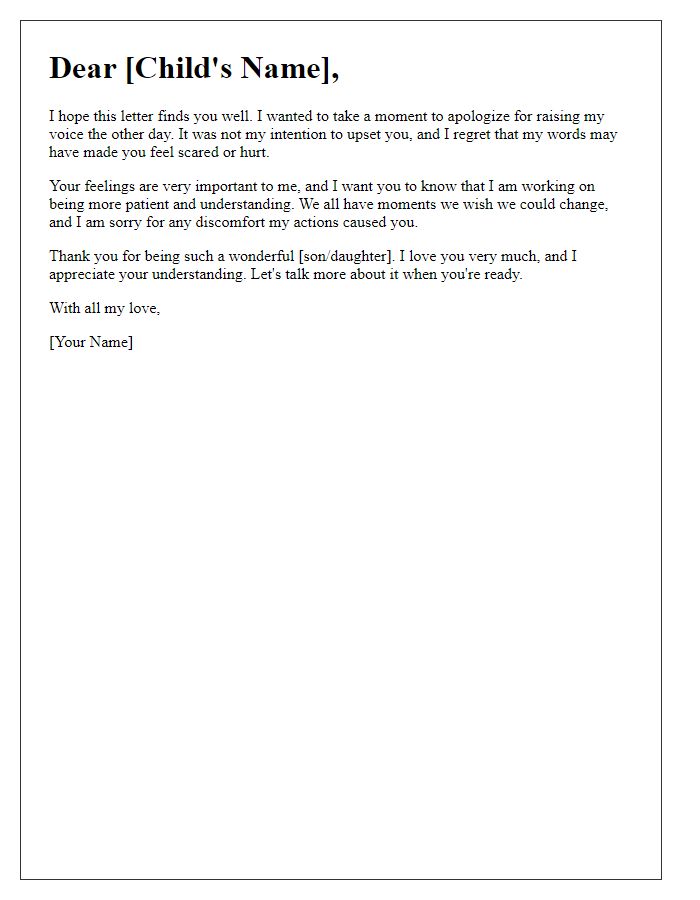
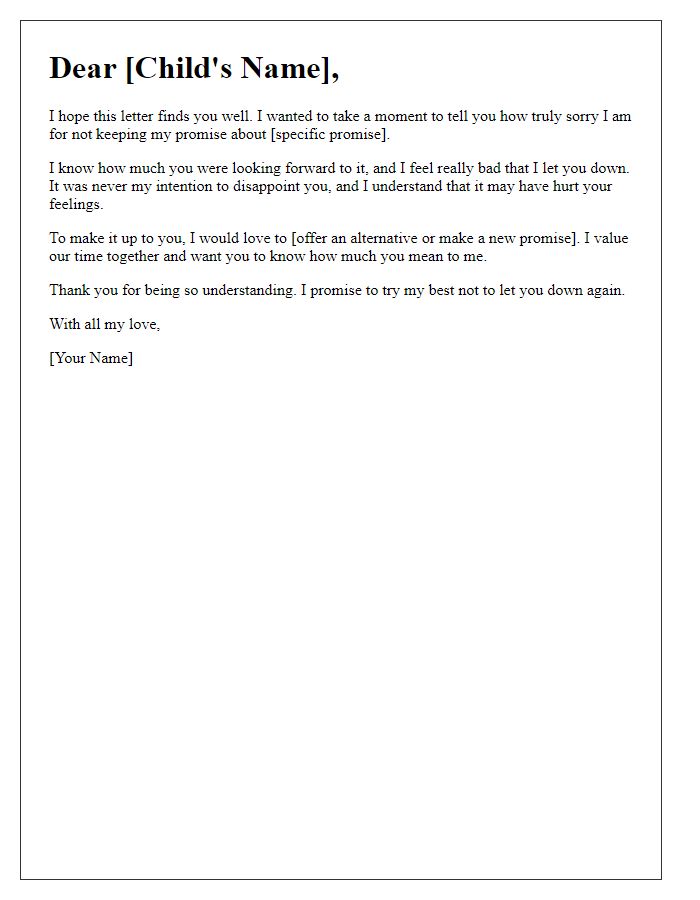
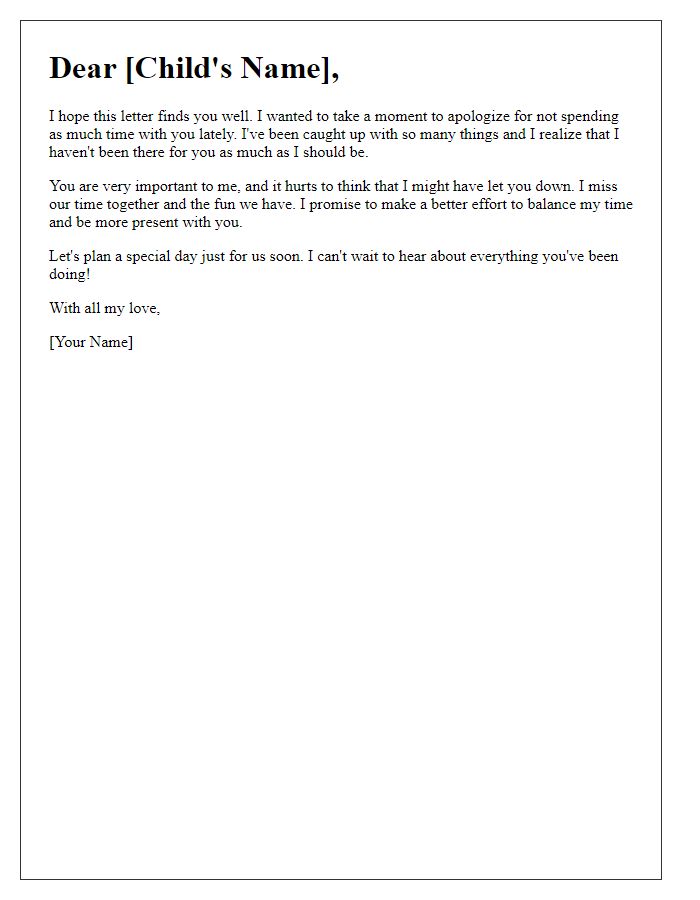
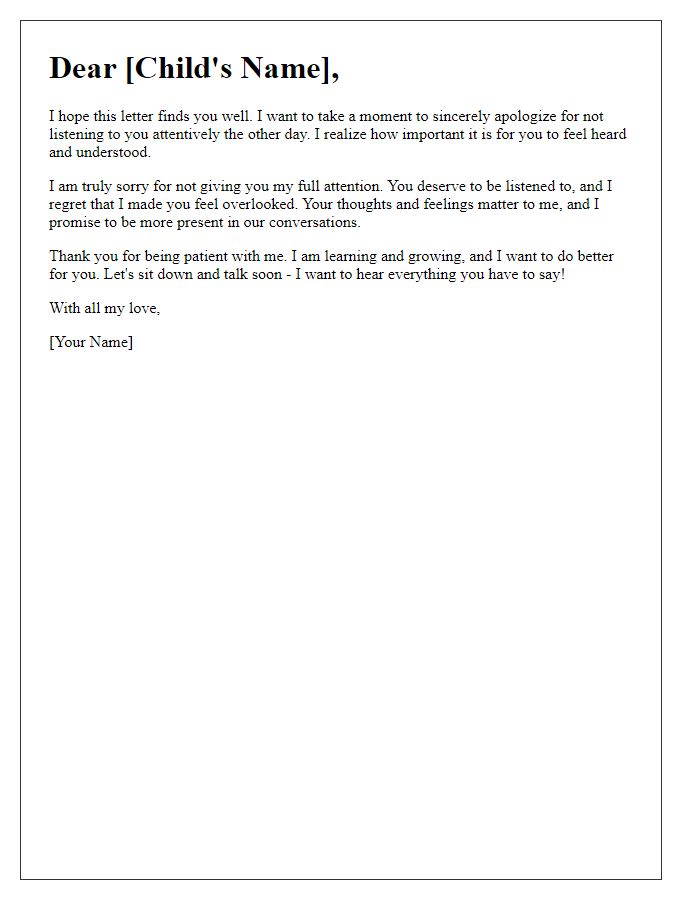
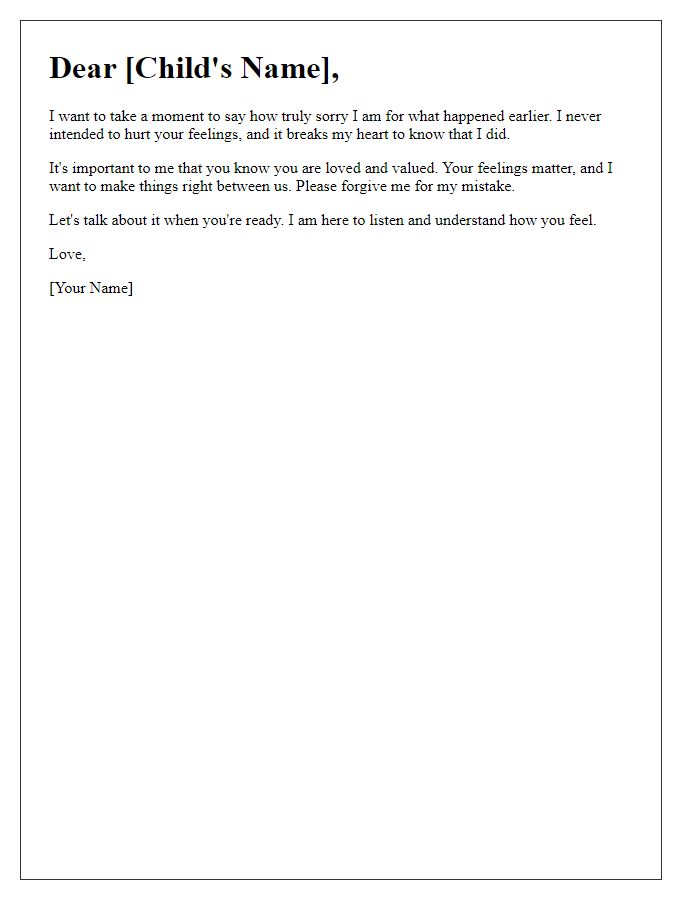
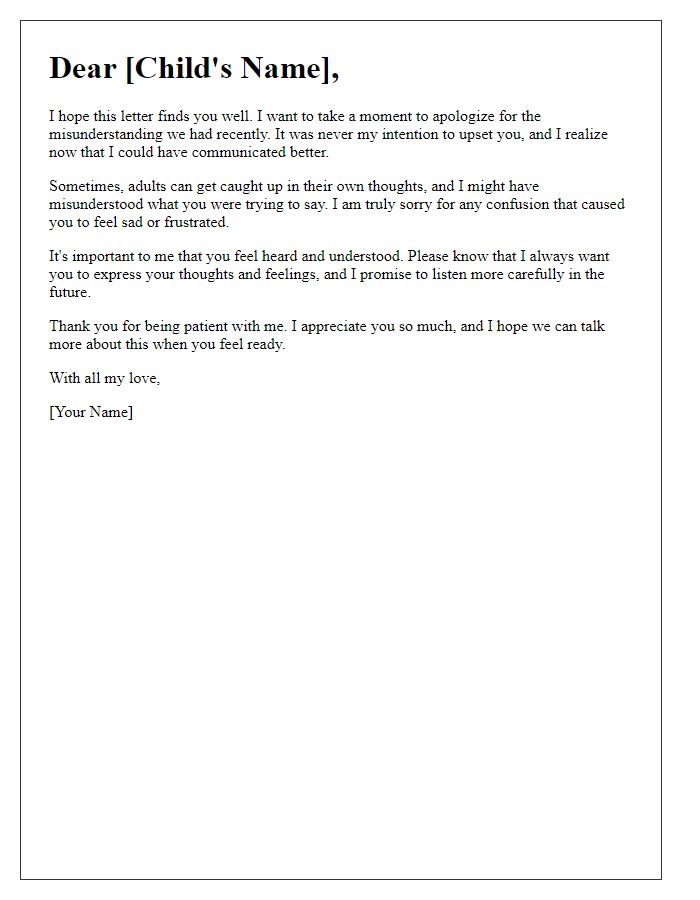
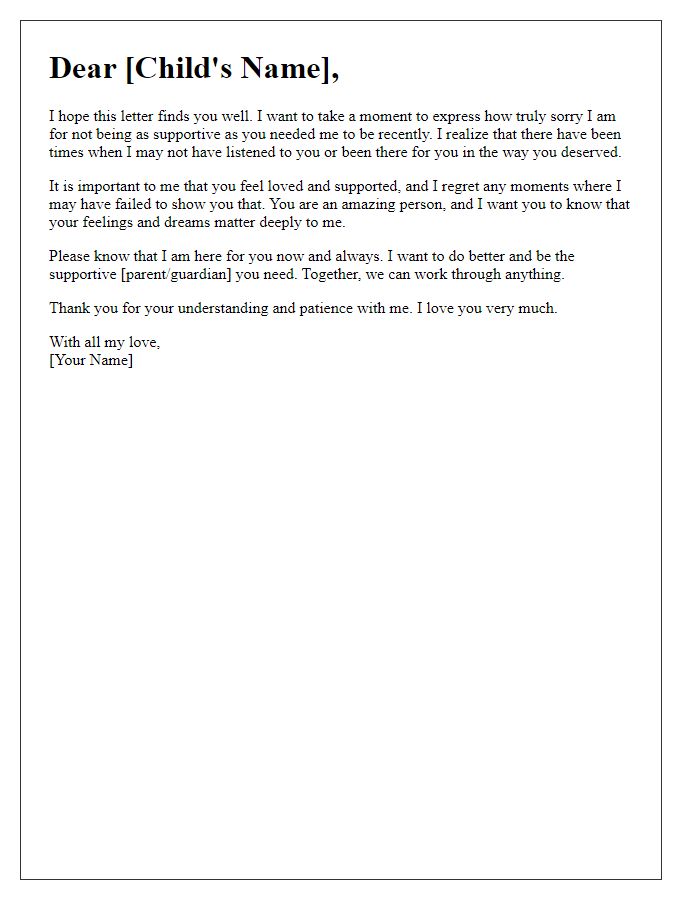


Comments